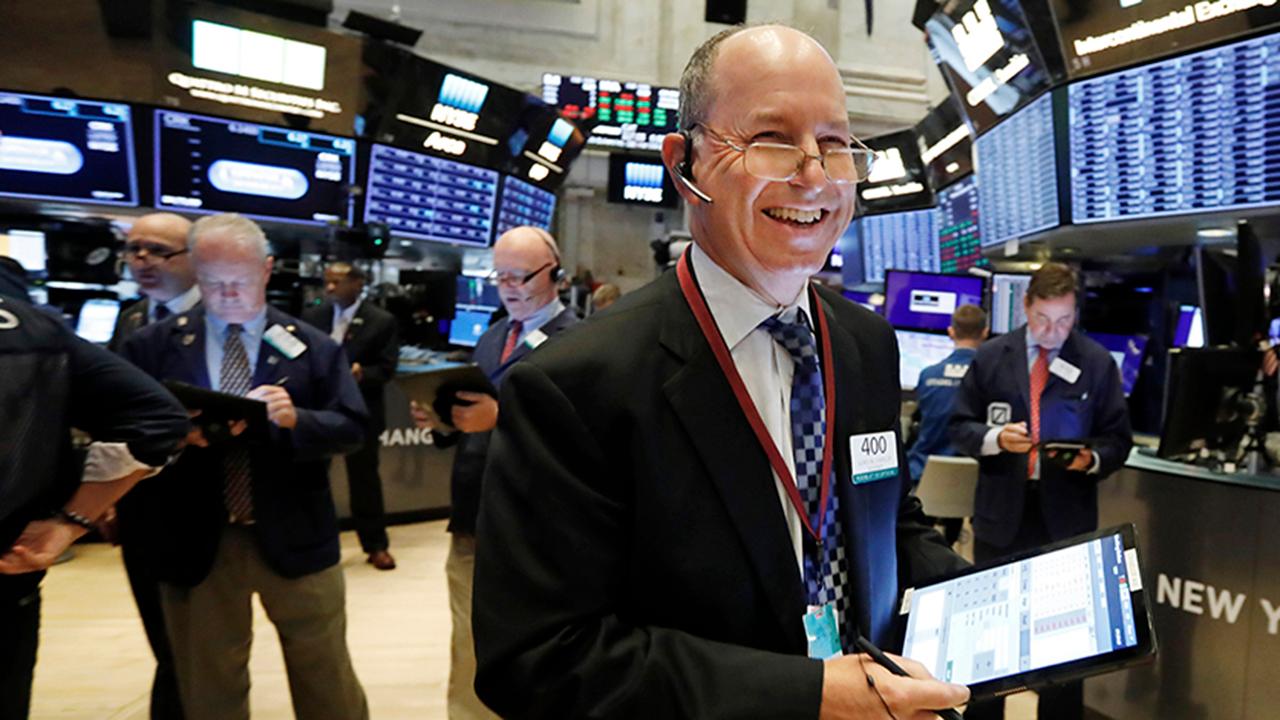New coronavirus spike short-circuits stock market rebound
'Second-wave fears could add to volatility'
A surge in new COVID-19 cases in some U.S. states has thwarted the stock market’s attempt to reclaim record highs from earlier this year but investors say it's unlikely to derail the economic recovery.
The benchmark S&P 500 finished the week 8.5 percent off its peak as the spike in cases curbed the lifting of earlier restrictions to curb the pandemic's spread.
The S&P 500 has slid 4.16 percent since putting in its post-recovery top of 3,232.39 on June 8. Still, the index is up 38 percent from its March 23 low.
| Ticker | Security | Last | Change | Change % |
|---|---|---|---|---|
| SP500 | S&P 500 | 6932.3 | +133.90 | +1.97% |
“While second-wave fears could add to volatility, ultimately in our central scenario, we expect the recovery to gather strength over the coming year,” Mark Haefele, chief investment officer at UBS Global Wealth Management, wrote in a note to clients on Thursday.
Arizona, Florida and Texas are among the states where new infections have topped previous highs. So far, 2.2 million Americans have contracted COVID-19 nationwide, with more than 118,000 dying and more than 599,000 recovering.
Stay-at-home orders aimed at slowing the spread of the virus, initiated in March, shut down nonessential businesses and sent the U.S. economy spiraling into its sharpest slowdown of the postwar era.
RECORD NUMBER OF BIG MONEY MANAGERS SAY STOCKS OVERVALUED AFTER CORONAVIRUS RALLY
U.S. gross domestic product contracted at an annualized 5 percent rate in the first quarter and is expected to shrink by at least 30 percent in the second quarter, according to Wall Street economists. About 46 million Americans have lost their jobs since the shutdowns began.
States, in an effort to reboot their economies, began easing lockdowns as early as April 24, with Arizona, Florida and Texas leading the way. It is not clear whether the recent burst of infections in those states was a result of their reopenings or the mass protests that followed the death of George Floyd, a black man in police custody in Minneapolis.
“These upticks are still small in relation to the capacity of health systems,” wrote Haefele. “Various governments, including the U.S., have stated that we will not see a renewed national lockdown,” he added. “We have not seen any negative consumer response to second-wave fears, and progress on vaccines and therapeutics continues to be made.”
But even without another lockdown, progress on reopening from the last one can be slowed.
OIL PRICES TOP $40 IN 'FASTEST REBALANCING' IN HISTORY
Apple on Friday announced the temporary reclosing of 11 stores in Arizona, Florida, North Carolina and South Carolina, indicating that corporate America is still cautious. The S&P 500 sold off sharply in response to the news, but recouped most of the losses in a session that saw heightened volatility due to the quarterly expiration of stock futures and options.
The index gained 1.86 percent this week, boosted by the Federal Reserve’s announcement on Monday afternoon that the central bank would directly buy corporate bonds. Momentum carried over into Tuesday’s opening, but the S&P 500 ended the week 0.86 percent below that day’s starting levels.
"We have not seen any negative consumer response to second-wave fears, and progress on vaccines and therapeutics continues to be made."
The stock market will have difficulty rallying any further “without a return to the levels of fundamental growth (both GDP & earnings growth) that existed before the pandemic gripped the world,” wrote Matt Maley, Boston-based chief market strategist at Miller Tabak & Co.
“Yes, the economy is improving to a substantial degree right now, but the vast majority of the evidence is still pointing to an economy that will not reach 2019 levels until late 2021 at the earliest.”
Dr. Anthony Fauci, the U.S. government’s top infectious disease expert, has chosen to err on the side of caution when it comes to reopening the economy.
He told The Wall Street Journal earlier this week that neither a strict shutdown nor a relaxed approach to strategies that reduce risk are the answer and that the solution probably lies somewhere in between.
CLICK HERE TO READ MORE ON FOX BUSINESS
“People keep talking about a second wave,” Fauci said. “We’re still in a first wave.”




















